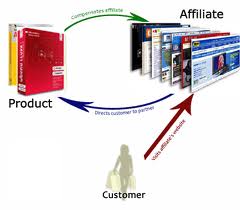Breaking Down the Rise of Affiliate Marketing Influencers: How They’re Changing the Game
In the age of social media, influencers have become a force to be reckoned with. These individuals, who command large followings on platforms like Instagram and YouTube, have the power to shape consumer behavior and influence purchasing decisions. While many influencers have traditionally made money through brand collaborations and sponsored content, there is a rising trend in the world of influencer marketing – the rise of affiliate marketing influencers.
Affiliate marketing is a performance-based advertising model where influencers promote products or services on behalf of brands, and earn a commission for each sale or lead generated through their promotional efforts. This form of marketing has been around for quite some time, but it is the emergence of influencers in this space that has really changed the game.
So, what is it about affiliate marketing influencers that makes them so effective? First and foremost, they have built a loyal and engaged audience. Unlike traditional celebrities who often have a more distant relationship with their fans, influencers have the ability to connect with their followers on a more personal level. Their content feels authentic and relatable, and their recommendations hold weight because they have already established trust with their audience.
Another key advantage of affiliate marketing influencers is their ability to target specific niche markets. Traditionally, brands would have to rely on broad advertising campaigns to reach a wide audience. However, with the rise of influencers, brands now have access to highly targeted communities, allowing them to reach their desired customer base more effectively.
These influencers are also able to create content that seamlessly integrates with their audience’s interests and preferences. Instead of interrupting their followers’ browsing experience with intrusive ads, influencers can create meaningful and entertaining content around the products they are promoting. This not only increases engagement and leads to higher conversion rates, but it also enhances the overall user experience.
The rise of affiliate marketing influencers has also brought about a shift in how brands allocate their marketing budgets. In the past, a significant portion of marketing funds would be spent on traditional advertising channels such as TV commercials or print ads. However, with the proven effectiveness of influencer marketing, brands are now diverting a portion of their budgets towards partnerships with influencers.
This shift is not only beneficial for the brands themselves, but also for the influencers. As affiliate marketing influencers demonstrate their ability to drive sales and generate leads, they become increasingly valuable to brands. This has resulted in influencers being able to negotiate higher commissions and secure more lucrative partnerships.
While the rise of affiliate marketing influencers has undoubtedly changed the game, there are also challenges that come with this shift. As more influencers enter the affiliate marketing space, competition becomes fiercer, and it becomes more difficult to stand out. Additionally, as the industry becomes more saturated, influencers must strive to maintain their authenticity and credibility to avoid alienating their audience.
In conclusion, the rise of affiliate marketing influencers has revolutionized the way brands reach and engage with consumers. These influencers, armed with their loyal followings and niche expertise, are changing the game by providing targeted and authentic content that resonates with their audience. As the influencer marketing landscape continues to evolve, we can expect affiliate marketing influencers to play an increasingly crucial role in shaping consumer behavior and driving sales.









